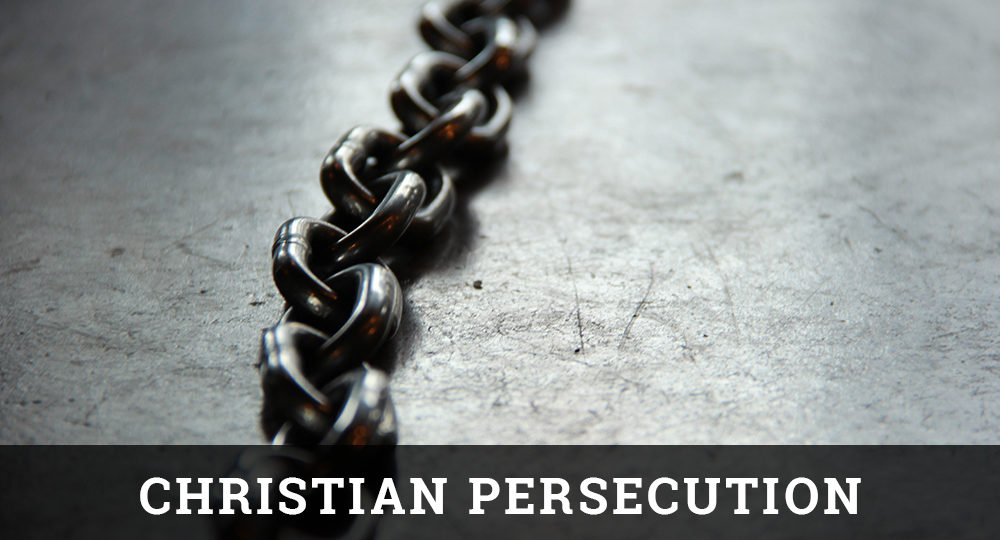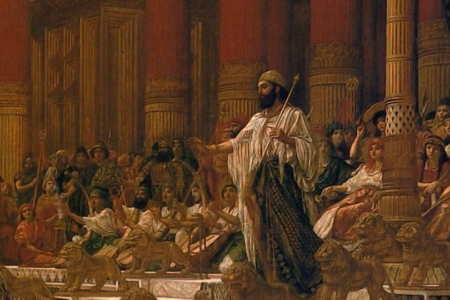Christian Persecution Sep/Oct 2022
Why Don’t These Black Lives Matter?
by Raymond Ibrahim
In June, Islamic terrorists again stormed a church in Nigeria, massacring more than 50 Christians who were peacefully worshiping their God. Videos showed church worshipers lying in pools of blood. Over the years, Muslims have assaulted, shot up, or torched countless churches in Nigeria.
Nigerian Christians are being purged in a genocide. One Christian is killed every two hours. According to an August 2021 report, since the Islamic insurgency began in earnest in July 2009—first at the hands of the Islamic terrorist organization Boko Haram and later by Fulani, Muslim herdsmen—more than 60,000 Christians have either been murdered or abducted, never to be seen again. During this same time, approximately 20,000 churches and Christian schools were torched and destroyed by “Allahu Akbar”-screaming Muslims.
This past spring, the Islamic State in Nigeria released a video of members slaughtering 20 Christians. Although reminiscent of the 2015 video of another pack of Muslim terrorists slaughtering 21 Coptic Christians in Libya, it received significantly less media coverage. And the 2015 video received six times less coverage than the killing of a gorilla that occurred at the same time.
The silence is deafening. When Australian Brenton Tarrant attacked two mosques and killed 51 Muslims in 2019 in New Zealand, the world stood up in condemnation; and the UN responded to that lone, aberrant attack by inaugurating a “combat Islamophobia” initiative. Where are the UN initiatives to combat antisemitism and Christian genocide?
All the UN seems interested in doing is ignoring violations of its own laws by its own members, such as Iran’s genocidal threats that violate the UN Charter and are grounds for expelling Iran. It ignores crimes against humanity. Instead, the UN wrongfully, mercilessly persecutes Israel, a democracy that actually protects and upholds human rights for all its citizens—whether Muslim, Jewish, or Christian.
So what will the UN do now in response to the shooting up of a church and the murder of more than 50 Christians? Absolutely nothing—except try to silence those who expose the driving ideology of the murderers.
Indeed, when members of the European Parliament recently proposed discussing the rising tide of Christian persecution around the world—including the stoning and burning to death of a Christian student—the majority of the parliament refused.
Ignoring the murder of Christians is merely one piece of the puzzle; covering up the murderers’ religious identities is the other. In describing the recent massacre in Nigeria, the words Muslim, Islam, or even Islamist never appeared in the Associated Press report.
One need only consider the words of former U.S. President Barack Obama’s assistant secretary of state for African affairs, speaking after Muslim terrorists in Nigeria slaughtered another batch of 50 Christian worshipers on Easter Sunday 2012: “I want to take this opportunity to stress one key point and that is that religion is not driving extremist violence [in Nigeria].” Instead, “inequality” and “poverty,” he said, are “what’s fueling all this stuff” (“this stuff” being the massacre of Christians at the hands of Muslims). A decade—and countless Christian corpses—later, the United States has not changed its position.
Worse, the Biden administration removed Nigeria from the State Department’s list of Countries of Particular Concern, that is, nations that engage in, or tolerate violations of, religious freedom.
Where is the outcry? Where is the outrage? Where are the hashtags in support of Christian Nigerians? Why don’t these black lives matter?
Raymond Ibrahim is a Shillman Fellow at the David Horowitz Freedom Center, a Judith Friedman Rosen Fellow at the Middle East Forum, and a Distinguished Senior Fellow at the Gatestone Institute. To read this article in its entirety, along with others by Raymond Ibrahim, log on to his website, raymondibrahim.com.
Used by permission.









Father, God, have Mercy
Grace and Favor
on the Christians
of Nigeria.